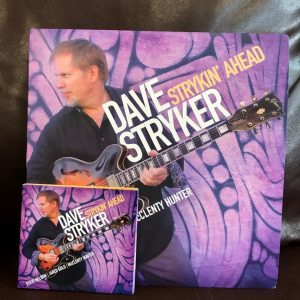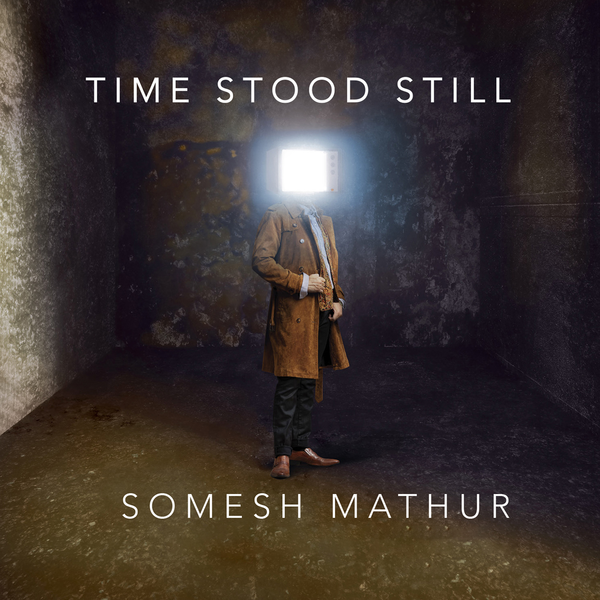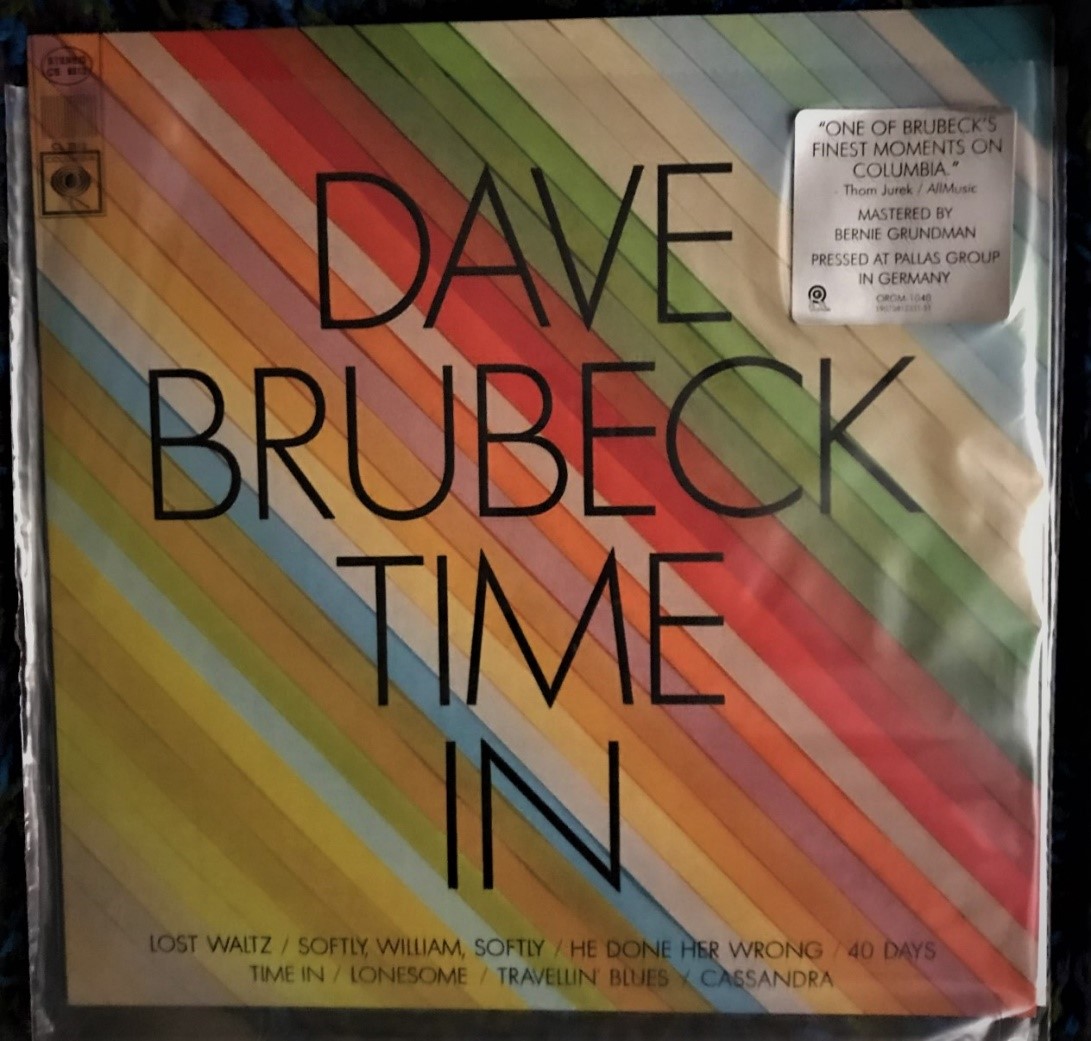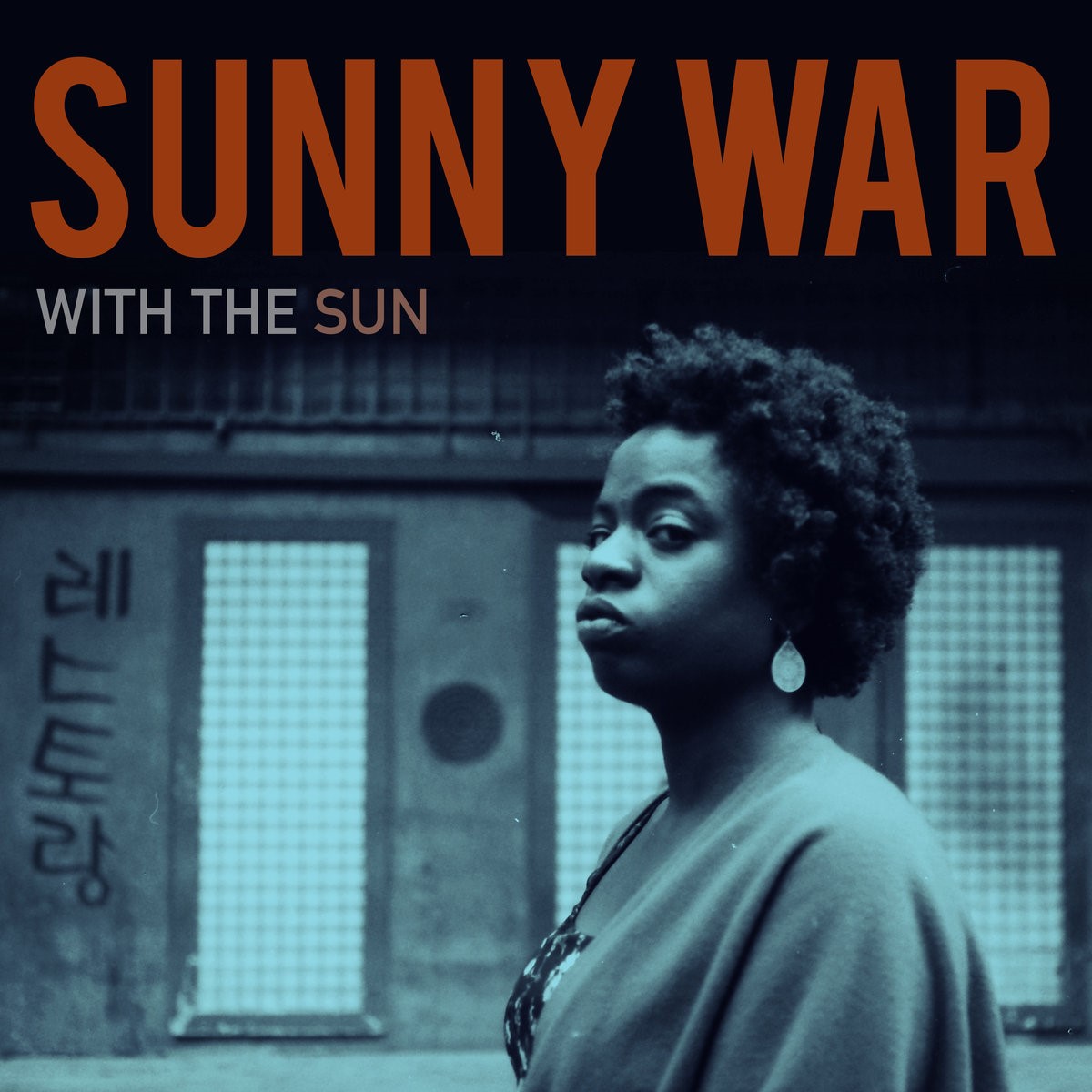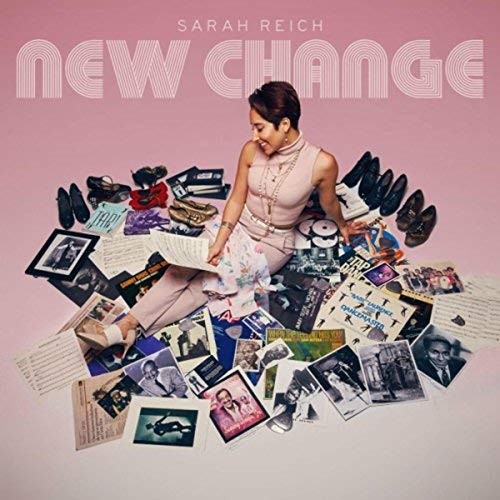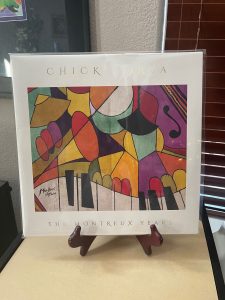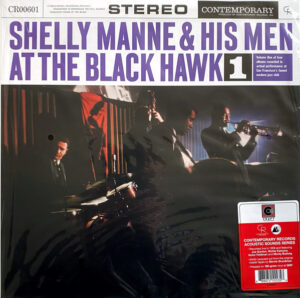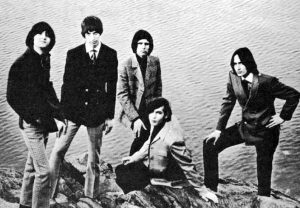Dave Stryker's Strykin' Ahead on CD and LP. (Strikezone 8815, CD $15, LP $25 www.davestryker.com)
The other night, while driving home one evening between Syracuse and Rochester, I happened upon a program called Cool Jazz Countdown on the local NPR station. The format of the show was clearly modeled on Casey Kasem's original Top 40 Countdown—if Casey had access to a huge pile of Valium on the audio console, that is. The hosts laid the cool on real thick, even though they committed the very uncool act of only playing a minute or so of each track during the countdown. It seemed they spent more time talking about the track they were about to play than actually listening to the music. I quickly became annoyed, and reached up to turn the knob and change the station.
Right before I twisted the knob, however, one of the hosts uttered a familiar name—Dave Stryker. What a coincidence, I thought, since Dave Stryker's new album Strykin' Back, was sitting at the top of my review pile. I was looking forward to reviewing it for two reasons. First, I received the album on both CD and LP and that always warms the cockles of my heart. Secondly, I reviewed Stryker's Eight Track II on my blog almost exactly one year ago and found it to have the same charm and feel of Paul Schaffer's band on David Letterman's show. “I smirked through the first listen,” I wrote, “fixating on the Schaffer similarities, but repeated listenings really won me over.”
It turns out that Strykin' Ahead placed rather high on the ol' countdown, and that surprised me a little bit. I've been spending so much time with contemporary jazz released by small independent labels that it seems like I've entered this insular little world where only a handful know and care about this music. I've read so much about the slow death of jazz in this country, exemplified by La La Land's martyrdom of the genre with Mia confessing to Senastian that she really doesn't like jazz, and of course she comes around by the third act because the love of jazz is such a noble thing. But the synchronicity of hearing a one-minute blip of Dave Stryker on the radio, a seemingly random occurrence, made me feel like the audience for this type of music just expanded exponentially, and that other people know about this Dave Stryker guy and really like what he's doing.
I certainly do. Strykin' Ahead, first of all, doesn't have that same Paul Schaffer feel as Eight Track II even though the musicians are the same. Jared Gold's Hammond B-3 still plays a central roll in Stryker's quartet, but it's more thoughtful than playful this time around. Stryker tones down the rough edges of his electric guitar and finds a mellower niche for his lightning-quick style—there are bone-dry shades of Pat Metheny in every track. Steve Nelson's vibraphone plays the same role as a rhythm guitar, providing extra timbre to the main melodies. And I continue to be impressed with drummer McClenty Hunter, who understands that dynamic and subtle are not mutually exclusive terms. All of these adjustments create a music that is more serious, for lack of a better word, and digs into much deeper emotions—this is not soundtrack music for throwing pencils across the set.
The differences are so profound that if you played both albums for me, I wouldn't have guessed that they came from the same four guys. As much as I enjoyed Eight Track II, I prefer these sessions—and that makes me ask the question: would the real Dave Stryker please stand up? Strykin' Ahead is his 28th album, which explains his lofty position on Cool Jazz Countdown. But as you glance at Stryker's entire catalog, you do see some recurring themes—especially in the way that he offers an almost equal mix of originals and standards, and the way he nurtures improvisation among his cohorts. He also has deep affection for fellow artists such as Wayne Shorter (“Footprints” is delivered compellingly in 5/4 time), Billy Strayhorn (“Passion Flower” is transformed into a bossa nova tune) and even Charlie Parker, whose “Donna Lee” closes the album. His love for his mentors has defined his work for decades.
I did manage to compare the CD and LP and found some interesting differences. I listened to the CD first and found it clear and realistic and very present, with spectacular imaging that carefully diagrams the relationships between the four musicians. I could have been happy listening to Strykin' Ahead for the rest of my days in this particular format. Then I gave the LP a spin and initially thought that it sounded smoother and rounder and perhaps a little less distinct. Then all those little details started to emerge—the solid foundations presented sans bass by the organ and vibes working in tandem, the explosiveness of Hunter's drums (even when he's just using brushes) and, of course, the sheer focus of Stryker's guitar.
The fact that the LP pressing is so quiet, and so understated in its beauty and realism, makes this one of the finest contemporary jazz releases of the year. I originally commented that Eight Track II required repeated listens to discover the magic, but this album reveals the same inspiration just seconds after the needle hits the groove. Highly recommended.




